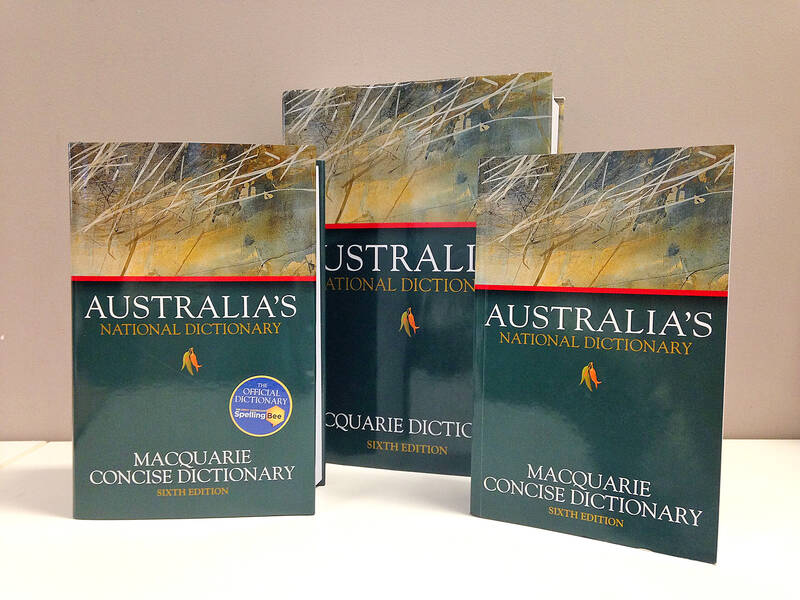“We’re all living through the enshittocene, a great enshittening, in which the services that matter to us, that we rely on, are turning into giant piles of shit,” author Cory Doctorow said earlier this year.
In 2022, Doctorow coined the word “enshittification,” which has just been crowned Macquarie Dictionary’s word of the year. The dictionary defined the word as follows.
“The gradual deterioration of a service or product brought about by a reduction in the quality of service provided, especially of an online platform, and as a consequence of profit-seeking.”

Photo courtesy of the Macquarie Dictionary
Social media users, if they don’t know the word, will viscerally understand the concept, the way trolls and extremists and bullshitters and the criminally vacuous have overtaken the platforms.
Think Twitter, a once useful and often fun microblogging site twisted by a tech bro into X, a post-truth swamp.
Or Facebook, where you’re now more likely to be presented with crocheted arseless chaps from Shein than a humblebrag from a dear friend.

Photo: Freepik
Or Instagram, where cute dog videos once reigned. Now, yet another unfathomable algorithm serves up a diet of tradwives, gym bros and uwu girls.
The dictionary’s committee described enshittification as “a very basic Anglo-Saxon term wrapped in affixes which elevate it to being almost formal; almost respectable.”
Without those affixes — if one were to say, for example, merely that X has got a bit shit — the deliberate degradation of the platform is erased.
With those affixes, the impression is conveyed of the platform owners tampering with their own product until the bad stuff, like guano on a rock, eclipses the original form.
Doctorow wrote that this decay was a three-stage process.
“First, platforms are good to their users; then they abuse their users to make things better for their business customers; finally, they abuse those business customers to claw back all the value for themselves,” he wrote.
“It’s frustrating. It’s demoralizing. It’s even terrifying.”
The Macquarie Dictionary committee’s honorable mentions went to “right to disconnect,” and “rawdogging.”
But enshittification not only won their vote, it took out the people’s choice award.
“This word captures what many of us feel is happening to the world and to so many aspects of our lives at the moment,” the committee said.
Doctorow himself is surprisingly optimistic about where this could all end up.
Action on competition to prevent market dominance, regulation on things such as digital privacy, more power for users to decide how they use platforms, and tackling the exploitation of workers could reverse the process, he wrote, because “everyone has a stake in disenshittification.”
Big tech can’t be fixed, he argues, but maybe it can be destroyed.
He adds a fourth stage to the tech platforms’ scatological journey from being good to users, to abusing them in favour of their customers, to abusing their customers to serve themselves.
“Then they die,” he wrote.

On April 26, The Lancet published a letter from two doctors at Taichung-based China Medical University Hospital (CMUH) warning that “Taiwan’s Health Care System is on the Brink of Collapse.” The authors said that “Years of policy inaction and mismanagement of resources have led to the National Health Insurance system operating under unsustainable conditions.” The pushback was immediate. Errors in the paper were quickly identified and publicized, to discredit the authors (the hospital apologized). CNA reported that CMUH said the letter described Taiwan in 2021 as having 62 nurses per 10,000 people, when the correct number was 78 nurses per 10,000

As we live longer, our risk of cognitive impairment is increasing. How can we delay the onset of symptoms? Do we have to give up every indulgence or can small changes make a difference? We asked neurologists for tips on how to keep our brains healthy for life. TAKE CARE OF YOUR HEALTH “All of the sensible things that apply to bodily health apply to brain health,” says Suzanne O’Sullivan, a consultant in neurology at the National Hospital for Neurology and Neurosurgery in London, and the author of The Age of Diagnosis. “When you’re 20, you can get away with absolute

May 5 to May 11 What started out as friction between Taiwanese students at Taichung First High School and a Japanese head cook escalated dramatically over the first two weeks of May 1927. It began on April 30 when the cook’s wife knew that lotus starch used in that night’s dinner had rat feces in it, but failed to inform staff until the meal was already prepared. The students believed that her silence was intentional, and filed a complaint. The school’s Japanese administrators sided with the cook’s family, dismissing the students as troublemakers and clamping down on their freedoms — with

As Donald Trump’s executive order in March led to the shuttering of Voice of America (VOA) — the global broadcaster whose roots date back to the fight against Nazi propaganda — he quickly attracted support from figures not used to aligning themselves with any US administration. Trump had ordered the US Agency for Global Media, the federal agency that funds VOA and other groups promoting independent journalism overseas, to be “eliminated to the maximum extent consistent with applicable law.” The decision suddenly halted programming in 49 languages to more than 425 million people. In Moscow, Margarita Simonyan, the hardline editor-in-chief of the